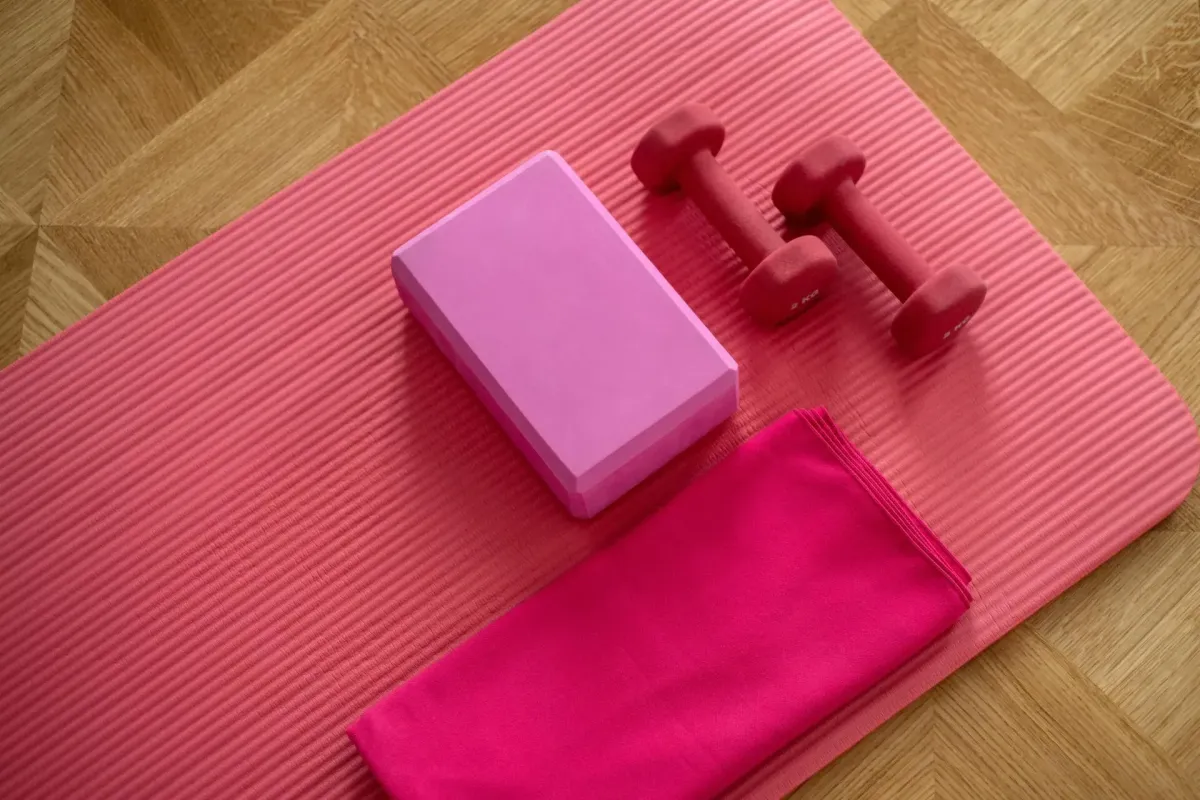READ UP ON THE LATEST HORMONE AND THYROID NEWS!

The Best Exercises for Women with Hypothyroidism
Movement and exercise is an important part of a healthy lifestyle, whether your goal is weight loss or not.
That being said, since weight gain is one of the most common symptoms of a low thyroid in women, I get a lot of questions about how to exercise properly and effectively with hypothyroidism.
Skip the long run and give your thyroid a break
Many people associate long bouts of cardio with weight loss. Not only is that not the case in generally healthy people, but those of us dealing with slow thyroids could just be making things worse.
Long-duration cardio can be activities such as running outside or on the treadmill, striding on the elliptical or an hour-long spin class. This type of intense exercise is a stressor on the body. It actually creates a situation where you will release more cortisol, which is your fight or flight and stress hormone. A chronic elevation of cortisol is just going to create more of a stress response in your body.
When this happens, it directly impacts the thyroid and our thyroid hormones (T4 and T3).
Chronic Stress + Thyroid Hormones
The thyroid and the adrenals are very closely connected and cortisol can inhibit some thyroid hormone conversion. So, when you are trying to convert T4 over to T3 you can't get that converted over because the body is under chronic stress. Your body ends up reverting it backwards and you create more reverse T3. This is inactive T3. Read more in this blog post about how stress impacts the thyroid.
Chronic elevation of stress from exercise will create that situation - and this is unfortunately all too common in women with slow thyroids! So, making your cardio sessions longer is not the way to go.

Photo by Geert Pieters for Unsplash
Instead, Try Weight Training
Okay don’t panic! Many women have an aversion to weight training, but hear me out on why you should make friends with your dumbbells and other resistance equipment.
First, weight or resistance training is beneficial to women because it stimulates muscle growth and muscle tone. Muscles that are active are engaging your metabolism, which is a goal when we are trying to lose weight! If you’re worried about getting bulky… don’t! You have to lift very heavy weights for a very long and consistent time to get those kinds of results.
When you’re weight training, your heart rate will go up and down because you do a set and then you pause before moving on to the next exercise. In between sets in between reps you're going to actually have a drop down in heart rate and then it goes back up. So that fluctuation in the heart rate is actually going to be better for your thyroid because you're not constantly stressing the body out and you're not constantly creating this release of cortisol.
The other thing I love about weight training is that it doesn't have to be a long workout! Just 30 minutes and you can get a really good workout in with some great strength training that your body can tolerate. And you pick the exercises that are gonna work for you.
My recommendation is to pick functional movements - movements that your body might make in the real world, so things like squats, deadlifts, shoulder presses, and so on.
Other Types of Thyroid-Friendly Exercises
Yoga and pilates are also great exercises for women with hypothyroidism. They help settle the mind, settle the body, get some good core work and stretching in. I do suggest if you're doing those to still also have some strength training connected with that.
If you love interval training, you can keep that up. Just keep the duration of your workout short and stick to movements you like, otherwise it will be too stressful on the body. I also only recommend interval training once or twice a week.
Here’s a fun fact: I am a certified physical therapist, fitness coach and fitness nutrition specialist. If you want help customizing a thyroid-friendly workout routine, I would love to chat! Head over to the contact page to send me a note.

The Best Exercises for Women with Hypothyroidism
Movement and exercise is an important part of a healthy lifestyle, whether your goal is weight loss or not.
That being said, since weight gain is one of the most common symptoms of a low thyroid in women, I get a lot of questions about how to exercise properly and effectively with hypothyroidism.
Skip the long run and give your thyroid a break
Many people associate long bouts of cardio with weight loss. Not only is that not the case in generally healthy people, but those of us dealing with slow thyroids could just be making things worse.
Long-duration cardio can be activities such as running outside or on the treadmill, striding on the elliptical or an hour-long spin class. This type of intense exercise is a stressor on the body. It actually creates a situation where you will release more cortisol, which is your fight or flight and stress hormone. A chronic elevation of cortisol is just going to create more of a stress response in your body.
When this happens, it directly impacts the thyroid and our thyroid hormones (T4 and T3).
Chronic Stress + Thyroid Hormones
The thyroid and the adrenals are very closely connected and cortisol can inhibit some thyroid hormone conversion. So, when you are trying to convert T4 over to T3 you can't get that converted over because the body is under chronic stress. Your body ends up reverting it backwards and you create more reverse T3. This is inactive T3. Read more in this blog post about how stress impacts the thyroid.
Chronic elevation of stress from exercise will create that situation - and this is unfortunately all too common in women with slow thyroids! So, making your cardio sessions longer is not the way to go.

Photo by Geert Pieters for Unsplash
Instead, Try Weight Training
Okay don’t panic! Many women have an aversion to weight training, but hear me out on why you should make friends with your dumbbells and other resistance equipment.
First, weight or resistance training is beneficial to women because it stimulates muscle growth and muscle tone. Muscles that are active are engaging your metabolism, which is a goal when we are trying to lose weight! If you’re worried about getting bulky… don’t! You have to lift very heavy weights for a very long and consistent time to get those kinds of results.
When you’re weight training, your heart rate will go up and down because you do a set and then you pause before moving on to the next exercise. In between sets in between reps you're going to actually have a drop down in heart rate and then it goes back up. So that fluctuation in the heart rate is actually going to be better for your thyroid because you're not constantly stressing the body out and you're not constantly creating this release of cortisol.
The other thing I love about weight training is that it doesn't have to be a long workout! Just 30 minutes and you can get a really good workout in with some great strength training that your body can tolerate. And you pick the exercises that are gonna work for you.
My recommendation is to pick functional movements - movements that your body might make in the real world, so things like squats, deadlifts, shoulder presses, and so on.
Other Types of Thyroid-Friendly Exercises
Yoga and pilates are also great exercises for women with hypothyroidism. They help settle the mind, settle the body, get some good core work and stretching in. I do suggest if you're doing those to still also have some strength training connected with that.
If you love interval training, you can keep that up. Just keep the duration of your workout short and stick to movements you like, otherwise it will be too stressful on the body. I also only recommend interval training once or twice a week.
Here’s a fun fact: I am a certified physical therapist, fitness coach and fitness nutrition specialist. If you want help customizing a thyroid-friendly workout routine, I would love to chat! Head over to the contact page to send me a note.

CALL US TODAY! (314) 226-3137
Content, including images, displayed on this website is protected by copyright laws. Downloading, republication, retransmission or reproduction of content on this website.

